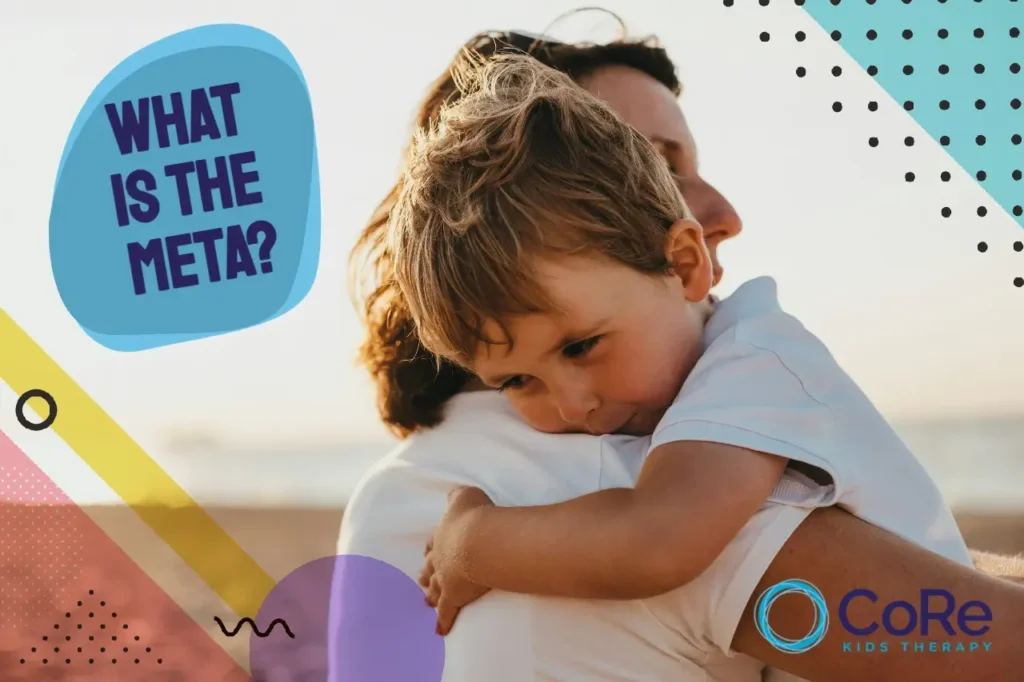By Ashley Stevenson
Emotions can seem complicated at times. Not only do we have a physical reaction to our own emotions and those of others, we also have lots of beliefs about emotions. These beliefs can come from our own upbringings, from our cultures or other life experiences. In layman’s terms, the concept of Meta-emotion is basically how we as individuals think and feel about particular emotions.
Perhaps you are a Dad who grew up in an environment where sadness was not tolerated in males, underpinned by the old adage “boys don’t cry.” Throughout your own life, when you have experienced sadness, you might have judged yourself harshly, telling yourself that crying is weak, or that you need to toughen up.
When you have noticed yourself feeling sadness in the past, you might have found yourself getting angry or ashamed. This is a perfect example of meta emotions. You experience an emotion, and then you have thoughts and feelings about that emotion that often influence your actions.
Now fast-forward and as a parent, your thoughts and beliefs about emotions, your meta emotions, play a part in how you respond to your children’s emotions. Take for example if you have meta emotions about anger being unacceptable, when you notice anger in your child you may find this very distressing. This can lead to greater difficulty with co-regulating with your child and coaching your child through this big emotion.
You may notice yourself dismissing the anger, punishing the anger, or feeling afraid of the anger and shutting down. This can create an obstacle to helping your child come up with safer ways to process their anger. If this has ever happened to you, it is important to practice self-compassion – you were doing the best you could with the resources you had at the time.
One small step we can take to help us address the impact of meta emotions on our parenting is to practice mindfulness. Using mindfulness to notice the emotions in our bodies, and what thoughts we are having about those emotions can assist with parenting from a place of greater self-awareness and not being judgmental.
Mindfulness is like a muscle that we build up over time. Just like we would not run a marathon without training, we also cannot expect ourselves to do this perfectly every time, especially without practice, training, and support.
If you would like to explore resources which could help enhance your ability to address the impact of meta emotions on your parenting, here are some suggestions:
Explore free Thoughtful Parenting Kit at Bringing Up Great Kids (BUGK) Resources – Australian Childhood Foundation Professionals.
Access mindfulness resources at https://raisingchildren.net.au/school-age/health-daily-care/mental-health/mindfulness.
Engage with your own counselling.
Consider a parenting program like Tuning Into Kids, which is offered at CoRe Kids therapy, Tuning Into Kids – CoRe Kids Therapy | Parenting Programs.
References
Gottman, J.M, Katz, L.F, and Hoovan, C. (1996). Parental Meta-emotion philosophy and the emotional life of families: Theoretical models and preliminary data. Journal of Family Psychology, 10 (3), 243-268.
Gottman, J.M, Katz, L.F, and Hoovan, C. (1997). Meta-emotion: How families communicate emotionally. Mahway, New Jersey: Lawrence Erlbaum Assoc.
Havinghurst, S and Harley, A. (2007) Tuning Into Kids Program Manual. Copyright The University of Melbourne, Sophie Havinghusty, and Ann Harley 2010.

